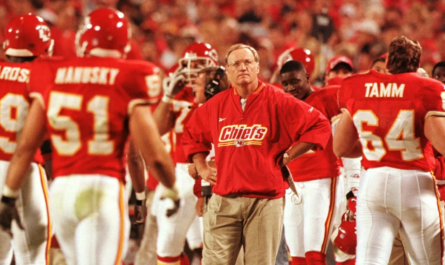## Jason Kelce and Mental Health: A Story of Resilience and Advocacy
Jason Kelce has established himself as one of the NFL’s top centers and a leader on the Philadelphia Eagles offensive line. But behind his success on the field, Kelce has also emerged as an outspoken advocate for mental health – sharing his own personal struggles in order to help others and reduce stigma. His journey illustrates the power of openness, support, and using one’s platform to promote important causes.
### Early College Struggles
Kelce’s mental health challenges began during his college career at the University of Cincinnati. As a student-athlete, he faced immense pressure both on and off the field. The demands of balancing football, academics, and his social life took their toll. Kelce started experiencing anxiety and depression during his junior season in 2010.
“I was really struggling at that point,” Kelce said in a 2021 interview with ESPN. “I was having a lot of anxiety, a lot of self-doubt. I was really down on myself.”
He did his best to hide his internal struggles, not wanting his coaches or teammates to view him as weak. Mental health issues carried a strong stigma, especially in male-dominated sports. Kelce feared that being open about his depression and anxiety could damage his football career.
“I was worried about my status on the team and how people would perceive me if they knew I was struggling with my mental health,” Kelce explained. He pushed through without seeking help, trying to cope on his own.
### A Turning Point
Things came to a head for Kelce during his senior season in 2011. The constant pressure and bottling up of his emotions began taking a physical toll. He was having trouble sleeping and lost his appetite, dropping nearly 20 pounds over the course of a few months.
It was then that Kelce made the courageous decision to confide in his then-girlfriend, Kylie. Opening up about his struggles was incredibly difficult, but Kylie provided empathy, comfort and encouragement to seek professional help.
“She really pushed me to go talk to somebody because she could see how much I was struggling,” Kelce said. “That was a huge turning point for me.”
With Kylie’s support, Kelce began seeing a therapist. Finally addressing his mental health issues head-on was life-changing. He started medication and therapy, which helped manage his anxiety and depression. Kelce was able to finish his senior season in a much healthier state of mind.
### Finding Strength Through Vulnerability
After going undrafted in 2012, Kelce signed with the Eagles and worked his way up from the practice squad to becoming a starter. His mental health journey continued behind the scenes as he navigated the ups and downs of an NFL career.
In 2021, Kelce decided it was time to share his story publicly in hopes of helping others and reducing stigma. Opening up about such a personal topic took immense courage, but Kelce believed the message of mental wellness was too important to keep private.
“I wanted to use my platform in a positive way,” Kelce said. By revealing his college struggles and treatment, he provided athletes and others an example that seeking help is a sign of strength, not weakness.
Kelce’s vulnerability resonated deeply. He received an outpouring of support from people who related to his experiences or found comfort knowing an elite athlete also faced mental struggles. His openness empowered many to seek their own treatment and prioritize self-care.
“I’ve had so many people reach out and say they appreciated me sharing my story because it helped them feel less alone in what they were going through,” Kelce said.
### Advocating for Change
Beyond sharing his personal journey, Kelce has become a passionate advocate for broader mental health reforms. He partners with organizations like the Jed Foundation and American Foundation for Suicide Prevention to promote resources and reduce stigma through education.
Kelce also uses his platform to encourage more open conversations around mental wellness. He challenges the outdated notion that seeking help equates to weakness, especially in male-dominated fields like sports.
“It’s okay to not be okay,” Kelce emphasizes. “The strongest thing you can do is acknowledge when you need help and then go get it.” He advocates for improved access to counseling services and more compassionate attitudes.
Kelce’s advocacy extends beyond the field as well. He’s participated in virtual panel discussions with lawmakers to promote legislative reforms improving mental healthcare, such as increased funding and coverage for treatment.
### Inspiring Others
Through his courage, resilience and advocacy, Kelce has undoubtedly helped countless people facing their own struggles. His story proves that prioritizing mental wellness doesn’t undermine success – it enhances quality of life both on and off the field.
Kelce continues to use his platform positively, stressing that mental health is a journey requiring ongoing care. While stigma remains, he’s encouraged more open conversations that help normalize seeking help.
“This is something I’ll always be dealing with and working on,” Kelce said. “But I’m in a much better place now.” His willingness to be vulnerable inspires others that they’re not alone, and there is strength in sharing one’s story to help others.
Kelce’s advocacy will likely impact mental health awareness for years to come. By challenging outdated views of masculinity and championing compassion, he sets an example of how we can build a society with greater understanding and support for all. His story of resilience through openness, treatment and advocacy offers hope that continues motivating others to prioritize their mental wellness.



